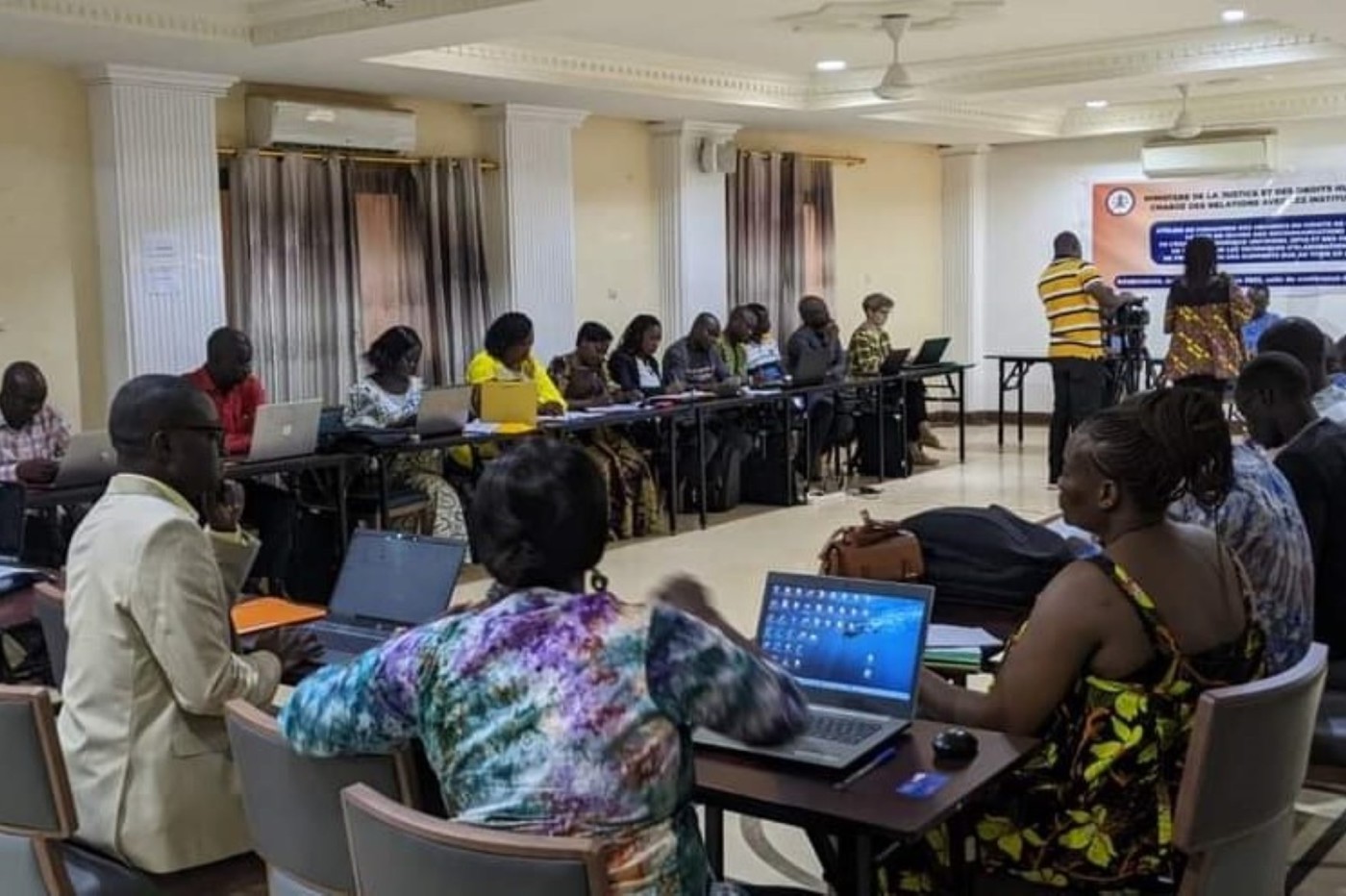
Project reference
21-0057-000-BFA-DanidaJust2
Contract duration
2021 - 2025
Budget
2,590,000
Countries
Burkina Faso
Keywords
Human rights, Institutional development, Justice/Rule of Law, Project implementation / Technical Assistance
Technical assistance for the implementation of the projects Improvement of the judicial system and access to justice 2021-2025 and Improvement of trust between the population and the internal security forces
The overall Technical Assistance was broken down into two components, linked by a joint general objective to contribute, within the thematic framework of governance of the Danish Country Programme for Burkina Faso 2016, to "an improved human rights situation, strengthening democratic governance and stability" in Burkina Faso.
The main focus was to provide technical assistance to the Governmental agencies and ministries to ensure that the danish programme did not convert into a simple patchwork of training and equipment activities, but that it materialized into a real governance project that links effectiveness, efficiency and accountability; the participation of citizens and CSOs, and inter-ministerial cooperation (particularly with Justice and Human Rights, Social Action and Promotion).
The development of these two axes was guided by the human rights-based approach (HRBA), particularly the four principles of non-discrimination, participation, accountability and transparency
Component 1: Technical Assistance To The Ministry Of Justice, Human Rights And Civic Promotion
The objective of the Development Commitment Paper 1 (DCP 1) was to “strengthen the effectiveness of human rights and the credibility of justice”.
Its aim was to produce the following four outputs:
The objective of the DCP 2 was to “help improve local access to justice, stability and the protection of human rights (2016 – 2020)”. Its aim was to produce the following three outputs:
The main focus was to provide technical assistance to the Governmental agencies and ministries to ensure that the danish programme did not convert into a simple patchwork of training and equipment activities, but that it materialized into a real governance project that links effectiveness, efficiency and accountability; the participation of citizens and CSOs, and inter-ministerial cooperation (particularly with Justice and Human Rights, Social Action and Promotion).
The development of these two axes was guided by the human rights-based approach (HRBA), particularly the four principles of non-discrimination, participation, accountability and transparency
Component 1: Technical Assistance To The Ministry Of Justice, Human Rights And Civic Promotion
The objective of the Development Commitment Paper 1 (DCP 1) was to “strengthen the effectiveness of human rights and the credibility of justice”.
Its aim was to produce the following four outputs:
- Output 1: the Ministry of Justice, Human Rights and Civic Promotion (MJHRCP) will monitor and coordinate the follow-up of the recommendations from the Universal Periodic Review (UPR) for which the public partners are responsible, and strengthen the government capacities in monitoring methods and documenting tools.
- Output 2: the UPR recommendations for which the MJHRCP is responsible were implemented, in particular concerning the key recommendations relating to the categories of rights that were targeted (e.g. child rights, women’s rights, the disabled and prisoners), contributing to an improved delivery of nationwide civic education on justice procedures.
- Output 3: the legislative framework was made more inclusive and participatory in accordance with the UPR recommendations concerning the independence of justice and the categories of rights targeted (child rights, women’s rights, the disabled and prisoners).
- Output 4: the code of ethics were adhered to better within the justice administration and by the governmental agencies and ministries.
The objective of the DCP 2 was to “help improve local access to justice, stability and the protection of human rights (2016 – 2020)”. Its aim was to produce the following three outputs:
- Output 1: security services has a good command of the tools and procedures for the protection of human rights, as per international standards.
- Output 2: security services show more presence and effectiveness in the towns / villages that do not have police or gendarmes, in particular by increased citizen participation.
- Output 3: the participation of the communities in building security are effective, especially for vulnerable groups.
- Support in reforming policies, security standards and human rights, as planned in the context of the security services’ missions, and support in preparing a White Paper on defence and security
- Consolidating the initial training in police and gendarme schools (new tools, approaches, procedures and techniques for human rights) and the continuing training (training of trainers and decentralised training in three regions) to accompany the huge ongoing recruitment drive for police officers and gendarmes.
- Support with communication and dialogue between the security services and the population, to assist with community participation on security issues, community conflict resolution and the fight against violent extremism.